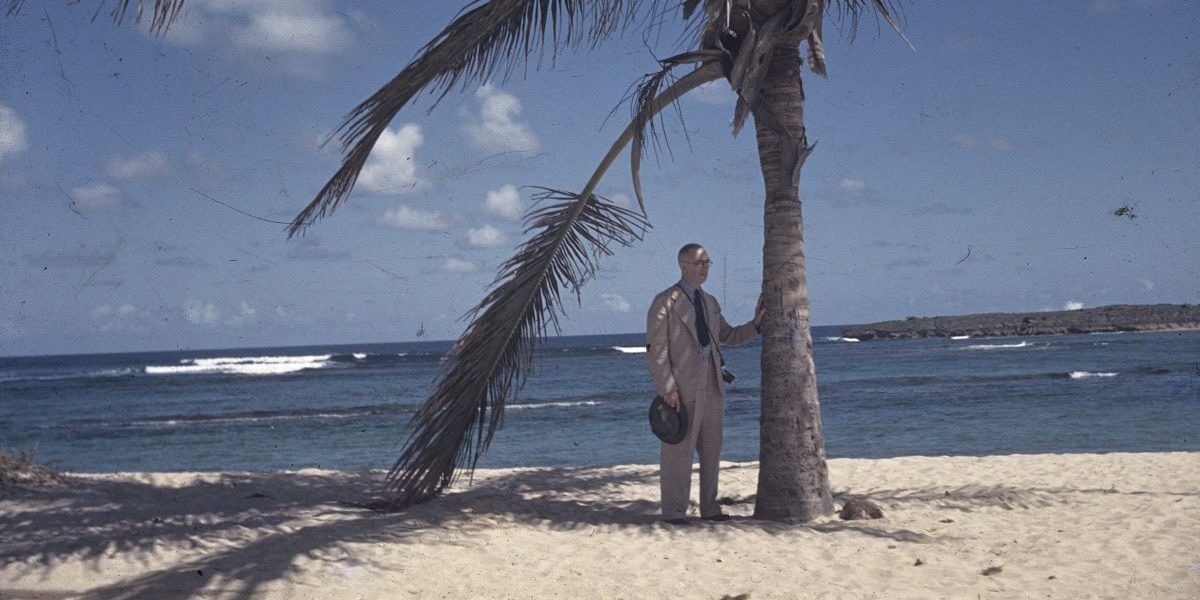Linda M. Rodríguez Guglielmoni, PhD, co-director
William Carlos Williams 10th Biannual International Conference
Tinta regada
1 de octubre de 2024
As co-director of the on-site organizing committee, I had the honor to welcome a distinguished group of professors, scholars, and poets to the 10th Biannual International Conference, Crossing Borders/Cruzando Fronteras, which was held at the University of Puerto Rico-Mayagüez campus from Thursday, 15th to Saturday 17th of February 2024. The conference was dedicated to William Carlos Williams, medical doctor, multilingual writer, and one of the most important poets of the 20th century. The program included presentations by researchers from our own campus, University of Puerto Rico-Mayagüez, and that of mainland USA and European universities. In addition, we were honored by two keynote speakers: Marta Aponte Alsina, author of La muerte feliz de William Carlos Williams, and Julio Marzán, author of The Spanish American Roots of William Carlos Williams.
It was a great privilege to celebrate this conference at the University of Puerto Rico, in the city of Mayagüez on Puerto Rico’s west coast where Williams’ mother, Raquel Hélène Rose Hoheb, was born. Moreover, it was our wish to honor the legacy of Williams and highlight the importance of his work as well as that of his Hispanic and Puerto Rican roots. Keeping with the spirit of the conference, the first day we gathered for the official opening at the Figueroa Chapel theater in the Chardón Building, a space that carries on its walls the artwork of another distinguished Puerto Rican artist, Antonio Martorell Cardona. The murals that decorate this theater resemble tree branches with words and phrases from the work of writers from the western side of the island: José De Diego, Agustin Stahl, Rafael Hernández, and Eugenio María de Hostos. Martorell Cardona’s concept intertwines the work of nature and humans and aptly visually reminded us of the conference’s unifying theme: Crossing Borders/Cruzando Fronteras.
On the second day of the conference, participants enjoyed a cultural walking tour of Mayagüez, sponsored by the city’s Office of Tourism. During the tour we visited the Alcaldía or Mayor’s office, a neoclassical construction dating from the early 20th century. Our guide also walked with us across the main town square, Plaza de Armas de Colón, and then together we visited the 18th century Catedral de Nuestra Señora de la Candelaria. As we sat inside the cathedral’s cool interior, our guide told us of the building’s historical and cultural significance where in the 19th century Segundo Ruiz Belvis and Ramón Emeterio Betances, members of an abolitionist society, baptized and emancipated thousands of slave children in what is now known as “aguas de libertad” or waters of liberty. We concluded our city tour at the Museo Casa Pilar Defilló, located in a 19th century house on Méndez Vigo Street, a space dedicated to the life and work of Pablo Casals, cellist, composer, and conductor. Friday evening became a celebration of Williams’ poetry as we all gathered at a farm to table restaurant, De Raiz, where chef Juan Camacho, prepared a special menu for us. As the dinner was being served, Dr. Ivette Romero of Marist College introduced visiting and local poets who honored us with their recitations of a poem by Williams and a selection of their own poems. The poets who read were Carmen Vega, Stephania Uwakweh, Jonathan Cohen, Mariam Ludin Rosa, Milton D. Carrero, Sabrina Ramos, Julio Marzán, and myself.
The last day of the conference was held at Salon Tarzán where additional presentations were delivered including a paper by Dr. Jeffrey Herlihy-Mera who spoke about his research on the possible location of Williams’ family home in Mayagüez. The conference concluded with a round table discussion on the issue of further possible research about Williams’ work and future collaborations between the University of Puerto Rico-Mayagüez and the Williams Carlos Williams Society such as placing a commemorative plaque on the house where the poet’s mother lived in Mayagüez.
Finally, I wish to thank our Chancellor, Dr Agustín Rullán, for the support he gave this conference as well as other University of Puerto Rico-Mayagüez officials and professors for their support and encouragement, among these Dr. Rosa Román, Dr. Emilia Quiñones Otal, Dr. Olgamary Rivera, Dr. Fernando Gilbes Santaella, Dr. José Irizarry, and Dr. Hugo Ríos. In addition, I wish to thank the president of the William Carlos Williams Society, Dr. Mark Long, who first contacted me and told me about the idea of celebrating this conference at the University of Puerto Rico-Mayagüez. Throughout the planning stages of the conference, which lasted an entire year, Dr. Long worked “virtually” hand in hand with the on-site organizing committee and enthusiastically accepted all our suggestions. The result was, I feel, a very successful and joyous celebration of Williams’ life and work. It is my heartfelt wish that we continue to explore Williams’ legacy as doctor and writer and his connections to Puerto Rico and especially to Mayagüez where his mother lived and where his family’s home stood on Calle Méndez Vigo.
